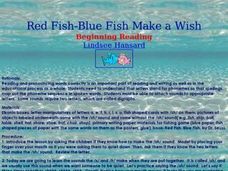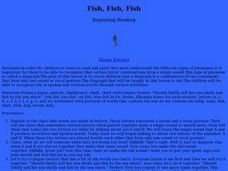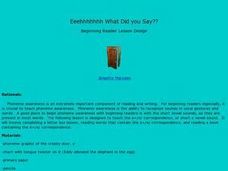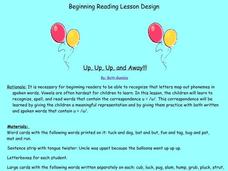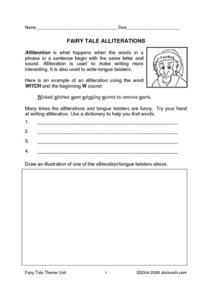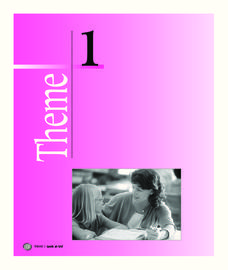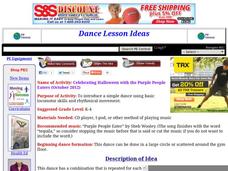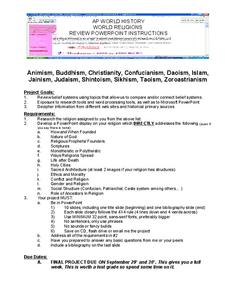Curated OER
Red Fish-Blue Fish Make a Wish
Students to read and pronounce words correctly. They investigate the letters that stand for phonemes so that spellings map out the phoneme sequence in spoken words. Students attach sounds to appropriate letters. They have some sounds...
Curated OER
Fish, Fish, Fish
Young scholars identify the digraph /sh/ in written and spoken language. After a brief discussion the independent and combined sounds of the phonemes /s/ and /h/ students practice identifying initial and final placement of the new...
Curated OER
Jack the Fat Cat
Young scholars recognize the short /a/ sound in written and spoken words in this lesson. They say a tongue twister which emphasizes words with the short /a/ sound. They then listen to the story "A Cat Nap" and identify the words in the...
Curated OER
Eeehhhhhhh What Did you Say??
Student read pseudo words containing the e=/e/ correspondence and recognize sounds in vocal gestures and words. They explore the e=/e/ correspondence, or short e vowel sound and complete a letter box activity, reading words that contain...
Curated OER
EA Words
Students determine if the "e" sound is long or short in words. In this language arts lesson, students practice discriminating between the long and short "e" sounds by practicing with word cards that are embedded in the lesson. This...
Curated OER
Shiny Shells on the Shore
Students investigate how: A single phoneme, which is a vocal gesture in spoken words, can be represented by more than one grapheme. Also how a digraph is the combination of two letters that make one sound (there are both vowel and...
Curated OER
Up, Up and Away
Students recognize the short vowel u in written and spoken language. Through matching and listening activities, they discriminate the vowel sound /u/ from other phonemes. Students identify the phoneme and letter in words and pictures.
Curated OER
Copycat, Copycat!
Learners observe that sometimes the letter "c" is a copycat letter and sometimes acts like a "k" or an "s" like in the words "cat" and "race". They use Elkonin letter boxes and letters to spell words as they are called out by the...
Curated OER
/o/... I can't stop yawning!
Students investigate the phoneme, a meaningful representation, and the letter symbol for /o/ (short o). This instructional activity helps students recognize the /o/ in spoken words and begin to spell words with the assistance of letter...
Curated OER
Name Game
Student select a name card from the envelope and class will then sound out the name of the child on the card. They then will spell out the child's name chanting "Give me an A...", "Give me an N...", etc. The teacher then says, "What does...
Curated OER
I Am Tired
First graders recognize the short vowel o in written and spoken language. Through listening and matching activities, they discriminate the vowel sound /o/ from other phonemes. Students associate the phoneme with its letter representation...
Curated OER
Yummy in My Tummy
Students explore phonemes in spoken words. They discuss the correspondence u=/u/. Students identify a meaningful representation for the phoneme and practice identifying /u/ in both written and spoken words. Students learn a tongue...
Curated OER
Camels Theme Unit
In this Camel themed worksheet, learners create an alliteration, an acrostic poem, and work with similes. The unit consist of three pages of language arts work, based on Camels.
Curated OER
Fairy Tale Alliterations
Fairy tales are the perfect way to focus on alliteration. Learners complete activities relating to alliteration and similes using a fairy tale theme. Then, they complete an acrostic poem using the words fairy tale.
Curated OER
Predictions by Famous People in History
In this prediction worksheet, students read 5 predictions made by famous historical people. They decide if the predictions became true or if it turned out to be false. They use a word bank at the bottom of the page to aid in comprehension.
Curated OER
Worksheet 4. Predictions
In this predictions learning exercise, students read 6 predictions that were made in history and identify each of them as true or false. Idioms and words are defined at the bottom of the sheet.
Houghton Mifflin Harcourt
Look at Us!: Extra Support Lessons (Theme 1)
Support struggling learners and focus on the alphabet with the three weeks of activities and materials provided here. Each day, learners review some letters and practice others in depth. They work on rhyming, practice new words, and...
Houghton Mifflin Harcourt
Colors All Around: Extra Support Lessons (Theme 2)
Learners that need extra support will benefit from this packet of materials that provide differentiated instructional materials designed for Houghton Mifflin Harcourt's thematic unit study of color.
Curated OER
Celebrating Halloween With the Purple People Eaters
Get youngsters moving by teaching them some basic dance moves. This dance can be done in a circle, a line, or scattered around the gym. There are four movement combinations that are taught to the song "Purple People Eater" by Sheb...
Houghton Mifflin Harcourt
Animal Adventures: Challenge Activities (Theme 6)
Challenge learners who have mastered the basic concepts in the Houghton Mifflin Harcourt thematic units on animal adventures with the activities and exercises suggested in this packet packed with ideas.
Welcome to Ms Bosello's Class!
Alliteration Worksheet
Alliteration and imagery are two vital parts of any well-written poem. Encourage your young poets to include these devices with a set of activities designed to get them thinking, writing, and creating.
Curated OER
Force and Motion
Each of the slides here gives a definition, equation, or calculation example for a component of force and motion. This large collection covers topics from momentum and Newton's laws to centripetal forces and simple machines. Animations...
Denton Independent School District
World Religions
Support your class members in gaining a more comprehensive understanding of cultures and perspectives around the globe with a project on world religions.
Curated OER
Misplaced Modifiers
Show your class how modifiers can be used properly and improperly. They will take a short quiz where they must choose between one of three sentences in 10 slides that correctly uses modifiers. This is a great review!


